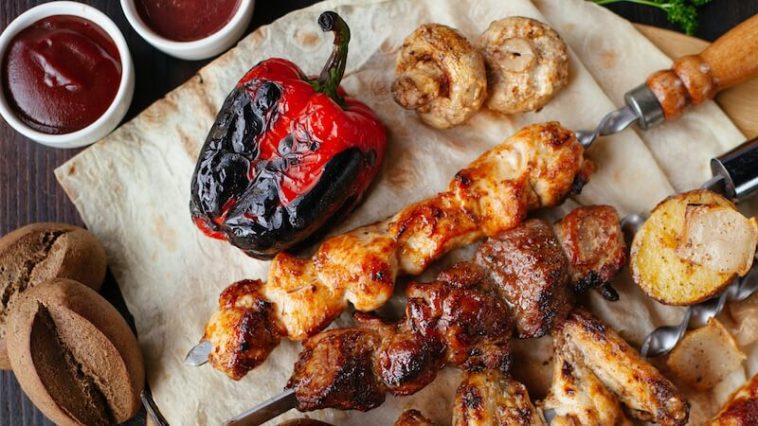Many runners wonder if they are getting enough protein to support their training load. It’s true that protein is essential to promote optimal recovery and maintain the integrity of your muscles. That said, your diet probably provides you with everything you need if it is balanced and if you eat enough to satisfy your appetite.
Your Protein Needs
Training obviously increases an individual’s protein requirements. Endurance athletes should target a minimum daily intake of 1.2 grams of protein per kilogram of body weight. For a 65 kg (145 lb) athlete, this represents 78 grams of protein. Specifically, this athlete will easily meet his or her needs by eating two 100-gram servings of lean cooked meats and two servings of dairy products during the day. That might not seem like a lot!
Protein intake should also be adapted according to training cycles throughout the year rather than aiming for a stable daily intake. When your training load is intense or when training is more focused on weight or distance, daily requirements can easily increase to two grams of protein per kilogram of body weight. For the same 65 kg athlete, this is equivalent to a protein requirement of 130 grams per day.

Is Too Much Protein Bad For You?
For some athletes, eating 1.2 grams of protein per kilogram of body weight daily is a very modest intake. It is therefore not uncommon for athletes to consume more protein than they need. A Quebec study of 116 non-elite endurance athletes showed that 87.1% of the individuals surveyed consumed more than 1.2 grams of protein per kilogram of body weight daily, and 66.4% consumed more than 1.6 grams of protein per kilogram of body weight.
Eating a lot of protein is not inherently bad. However, it is important to consider that if protein-rich foods are a big part of your diet, there are probably other types of food that are eaten in smaller amounts. Thus, a higher protein intake may affect your carbohydrate needs. And carbohydrates are your main fuel for exercise!
Distribute Protein Among Meals
Eating enough protein is pretty easy. Spreading your intake throughout the day is more often problematic. Uneven distribution can interfere with muscle synthesis. The body is reluctant to build up protein reserves for later use. More than roughly 30 grams in one meal (or snack) offers no meaningful advantage. It is therefore useless to eat like the proverbial cave man! It is far better to eat moderate portions of protein well distributed throughout the day.
You should also focus on the post-training period. Eat a snack containing carbohydrates and about 20 grams of protein within 30 minutes after a long or very intense workout. This will promote recovery and give you a better chance to perform at your best.
Translation : William Chabot-Labbé
Isabelle Morin is a dietitian-nutritionist and has completed her diploma in sports nutrition with the International Olympic Committee. She is a lecturer at the University of Quebec in Trois-Rivières and collaborates with La Clinique du Coureur. You can meet with her in the Quebec City area or reach her via the internet. Visit her Facebook page.
Must Read:
- How Your Gut Microbiota Will Make You a Better Runner
- Beware, alcohol affects fitness!
- What and How to Eat the Four Days Before a Big Race
References for this article:
- American College of Medecine, Academy of Nutrition and Dietetics and Dieticians of Canada. Nutrition and Athletic Performance (2016). Medecine & Science of Sports & Exercise
- G. Masson et B. Lamarche,Many non-elite multisport endurance athletes do not meet sports nutrition recommendations for carbohydrates (2016). Physiologie appliquée, nutrition et métabolisme
- Moore et al. Ingested Protein Dose Response Of Muscle And Albumin Protein Synthesis After Resistance Exercise In Young Men (2009). The American Journal of Clinical Nutrition


